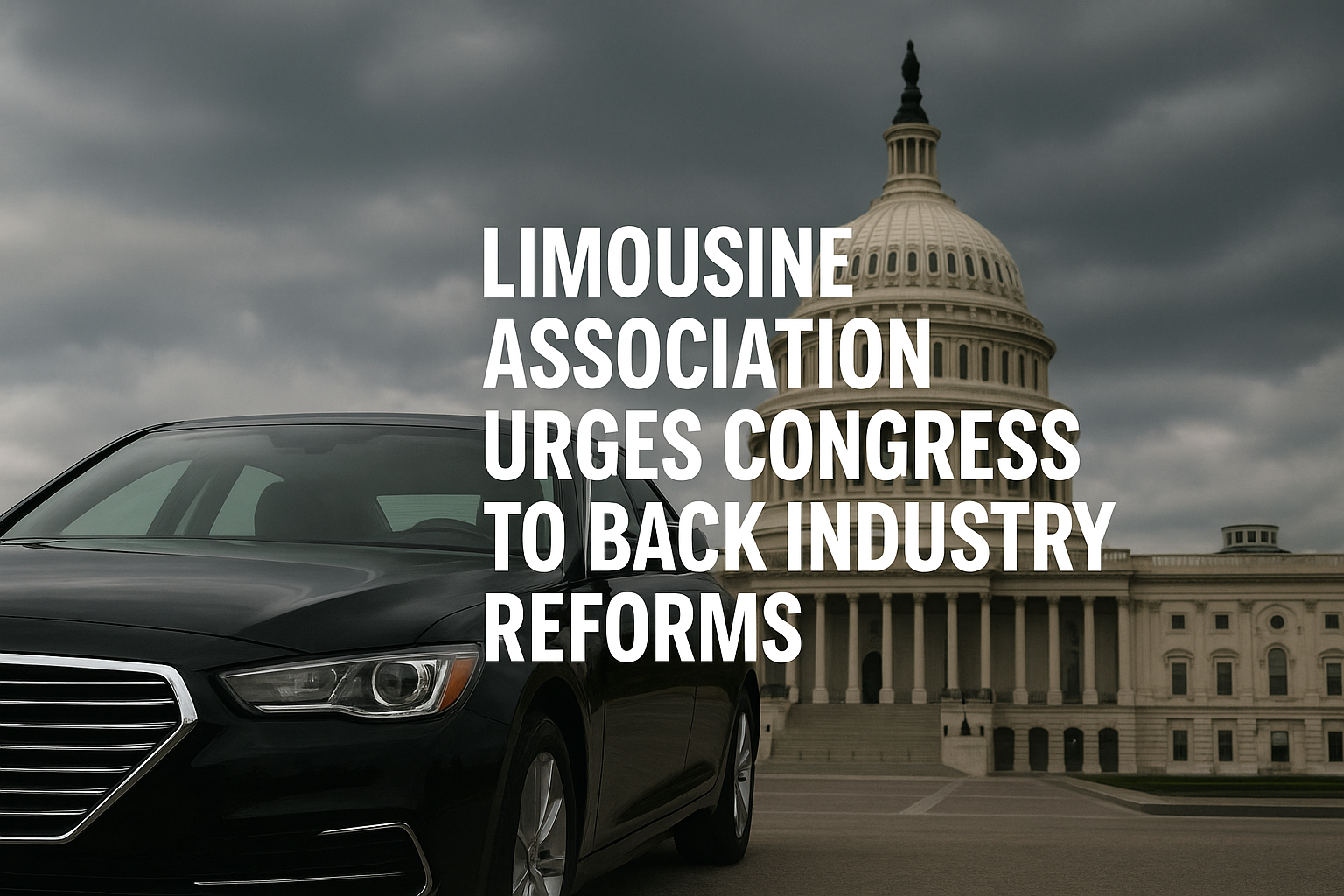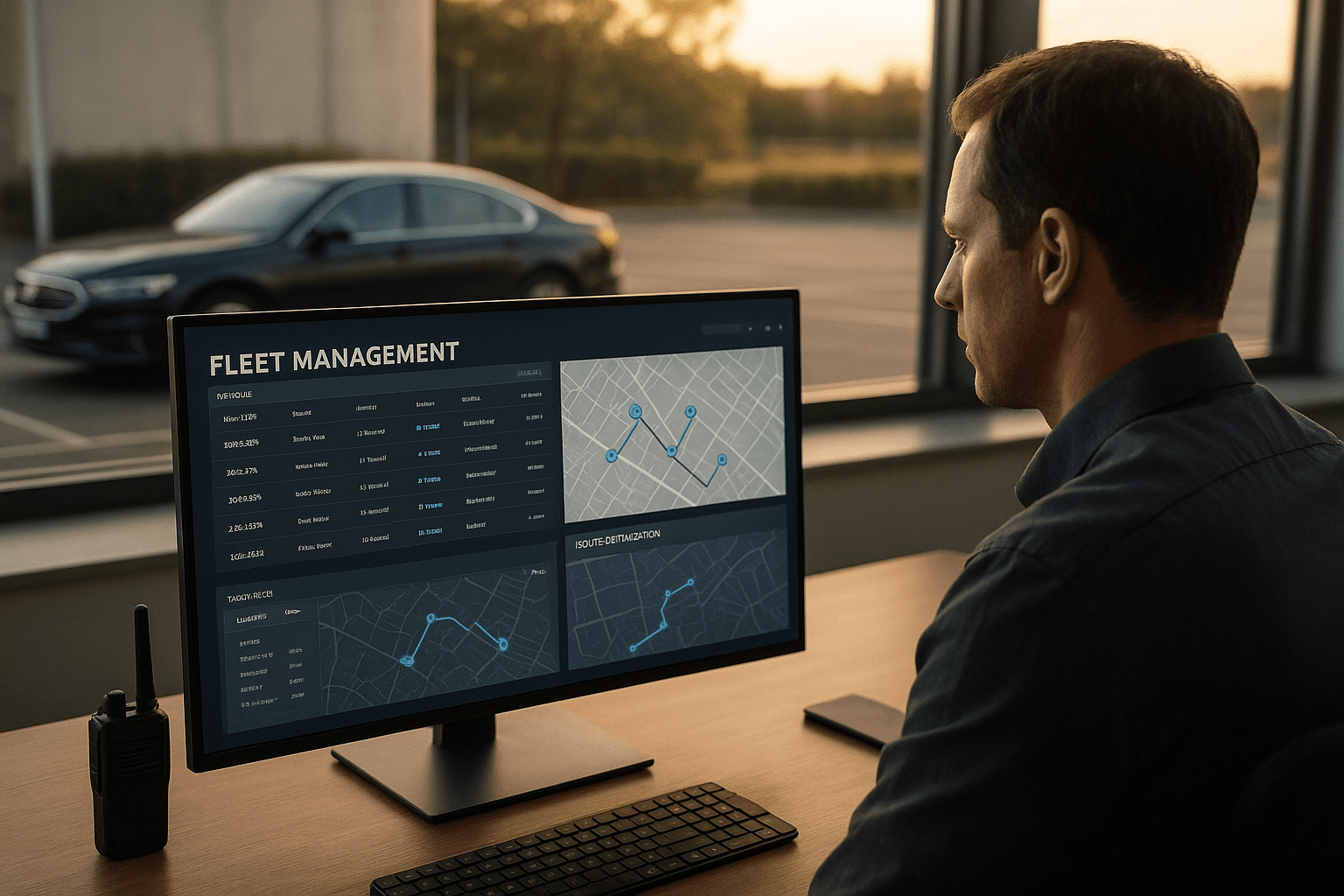The ground transportation industry plays an essential role in keeping people and businesses connected across the United States. In recent weeks, a major development has caught the attention of operators nationwide. The National Limousine Association (NLA) has made a direct appeal to Congress to support a series of reforms aimed at protecting and strengthening the limousine and shuttle industry. This push comes at a time when many operators are facing rising costs, uncertain regulations, and increased competition from rideshare platforms and larger fleet operators.
During the NLA’s 25th annual “Day on the Hill” event in Washington, D.C., held on April 29, 2025, representatives from 33 states gathered to meet with nearly 90 lawmakers. The association presented a list of key policy priorities that, if passed, could make a substantial difference in how small and medium-sized transportation companies operate. These priorities included restoring bonus depreciation for vehicle purchases, eliminating federal taxes on employee tips, increasing Section 179 deductions, addressing surging commercial auto insurance costs, preventing harmful effects from congestion pricing, and ensuring fair access to airports nationwide.
By bringing these issues directly to policymakers, the NLA aims to create a fairer and more sustainable environment for operators. For shuttle and limousine companies, these reforms are not just about reducing costs. They’re about ensuring the long-term survival and growth of their businesses.
🏛️ Key Reforms Advocated by the NLA
1. Restoring Bonus Depreciation
Currently, the NLA advocates restoring 100% bonus depreciation under Section 168(k). As a result, this change would allow operators to deduct the full cost of new vehicle purchases in the year they are acquired. For shuttle or limousine companies, vehicles are core assets. Restoring bonus depreciation could provide tens of thousands in immediate tax relief. This makes upgrading fleets more affordable. Companies can maintain a professional image and meet customer expectations without taking on unmanageable debt.
2. Eliminating Taxes on Employee Tips
Additionally, the NLA is also pushing for the elimination of federal taxes on employee tips. Chauffeurs and drivers often rely on tips, but the current tax system reduces their earnings. Removing these taxes could improve driver retention. It could also attract more skilled professionals, which is essential for maintaining high service standards.
3. Enhancing Section 179 Deductions
Furthermore, beyond bonus depreciation, the association wants to increase limits for Section 179 deductions, which would allow companies to expense more of their equipment and vehicle purchases. As a result, for smaller operators. Smaller operators could invest in technology, dispatch systems, and office equipment while avoiding long-term depreciation concerns, this could mean making necessary investments in technology, dispatch systems, and office equipment without worrying about long-term depreciation schedules.
4. Addressing Rising Commercial Insurance Costs
Currently, commercial auto insurance costs have been rising for years, putting pressure on operators’ profit margins. The NLA’s proposal to establish a federal task force to study these costs could lead to solutions that keep premiums fair and predictable. Sudden cost spikes can be devastating, especially for companies with multiple vehicles. This change would bring much-needed stability.
5. Preventing Harmful Congestion Pricing
Recently, several major cities have been exploring congestion pricing, which charges vehicles to enter high-traffic areas. These policies aim to reduce congestion. However, they can have unintended consequences for limousine and shuttle operators, especially those serving airports and downtown hotels. early those serving airports and downtown hotels. Accordingly, the NLA is advocating for thorough economic impact studies before such policies are implemented, ensuring that small businesses are not unfairly burdened.
6. Ensuring Fair Airport Access
Importantly, airports are critical hubs for shuttle and limousine services. The association wants to extend FAA grant assurances to cover ground transportation providers, ensuring they are treated fairly and given equitable access to passengers. As a result, without such protections, airport authorities could impose restrictive rules or excessive fees that make it difficult for operators to compete.
🚐 Impact on Shuttle and Limousine Operators
If the proposed reforms are adopted, the impact on operators could be substantial. First, follow NLA updates and local associations. Next, participate in advocacy, write to congressional representatives, and attend industry events.
Financial Relief and Fleet Upgrades
Regarding financial relief and fleet upgrades. Consequently, restoring bonus depreciation and increasing Section 179 deductions would let companies invest in fleets and infrastructure without long-term tax burdens.
Improved Employee Retention
Additionally, eliminating tip taxes would not only help drivers take home more pay but could also lead to better service quality. As a result, happier employees are more likely to deliver exceptional customer experiences. For an industry built on service, this could become a competitive advantage.
Stability in Insurance Costs
Moreover, reducing insurance cost volatility would help operators plan budgets more effectively, ensuring they can allocate resources toward marketing, technology, and customer service improvements rather than reacting to sudden premium spikes.
Protection Against Restrictive Policies
Meanwhile, preventing harmful congestion pricing and ensuring fair airport access would protect vital revenue streams. Many shuttle and limousine companies rely heavily on airport transfers and city-center pickups, and any policy that restricts access to these areas can directly threaten profitability.
🛠️ Steps Operators Can Take Now
Legislation takes time. Operators don’t have to wait to improve their businesses. There are proactive steps companies can take to prepare for potential changes and strengthen their position in the market.
Stay Informed and Get Involved
First, follow updates from the NLA and your local transportation associations. Next, participate in advocacy efforts, write to your congressional representatives, and attend industry events where policy changes are discussed. As a result, being informed gives you a head start in adapting to new regulations.
Plan Fleet Investments Strategically
If bonus depreciation and increased Section 179 deductions are restored, timing your vehicle purchases to align with these changes could result in significant tax savings. Prepare now by evaluating the state of your current fleet and identifying priority replacements or upgrades.
Review Employee Compensation Structures
If tip taxation changes, you may want to revisit how you structure pay and incentives for drivers. Attractive compensation packages can help you retain top talent and reduce turnover.
Strengthen Business Resilience
Diversify your revenue streams by targeting corporate accounts, hotels, event planners, and private clients. Avoid relying solely on one source of bookings, such as airport transfers, so that your business can withstand policy or regulatory shifts.
Leverage Technology and Outsourced Services
Using advanced dispatch software, CRM tools, and outsourcing customer support or dispatch operations can reduce costs and improve service efficiency. Partnering with experienced providers can help you maintain 24/7 coverage and high service standards without increasing payroll expenses.
📝 Final Thoughts
The NLA’s push for legislative reforms highlights the need for fair, sustainable policies in the ground transportation industry. For limousine and shuttle operators, these changes could mean lower costs, better employee retention, and a more predictable business environment. Staying informed, planning ahead, and leveraging technology are essential steps to ensure your company thrives, no matter what regulations lie ahead.
Home | About Us | Pricing | Get Started | FAQ | Dispatch Daily | Contact Us
WhatsApp | Facebook | LinkedIn




Leave a Reply